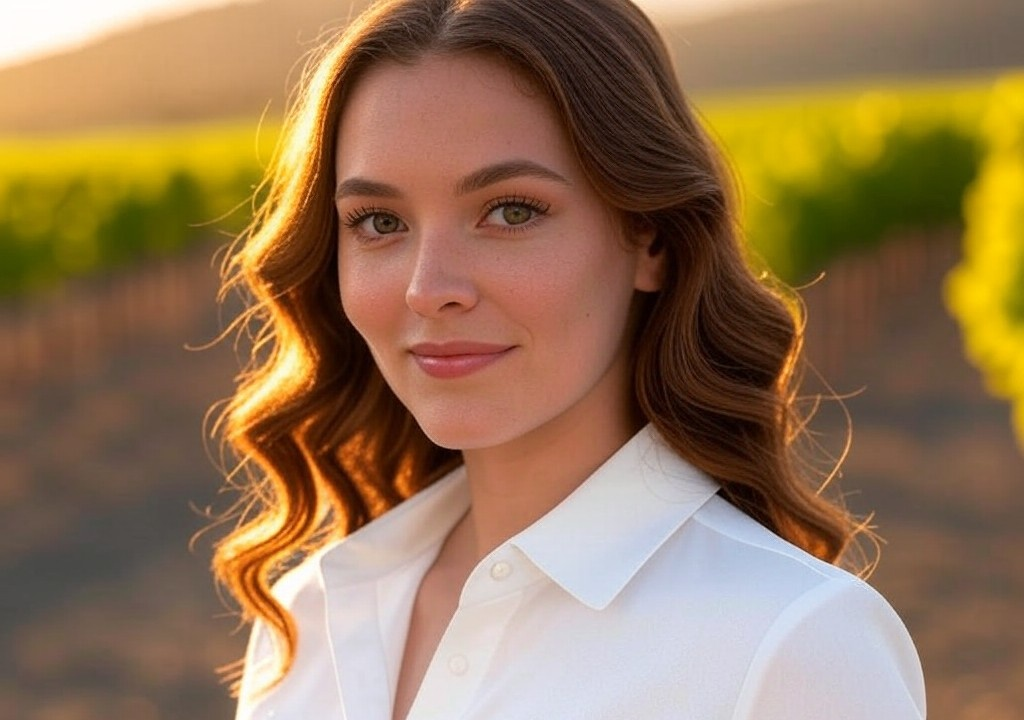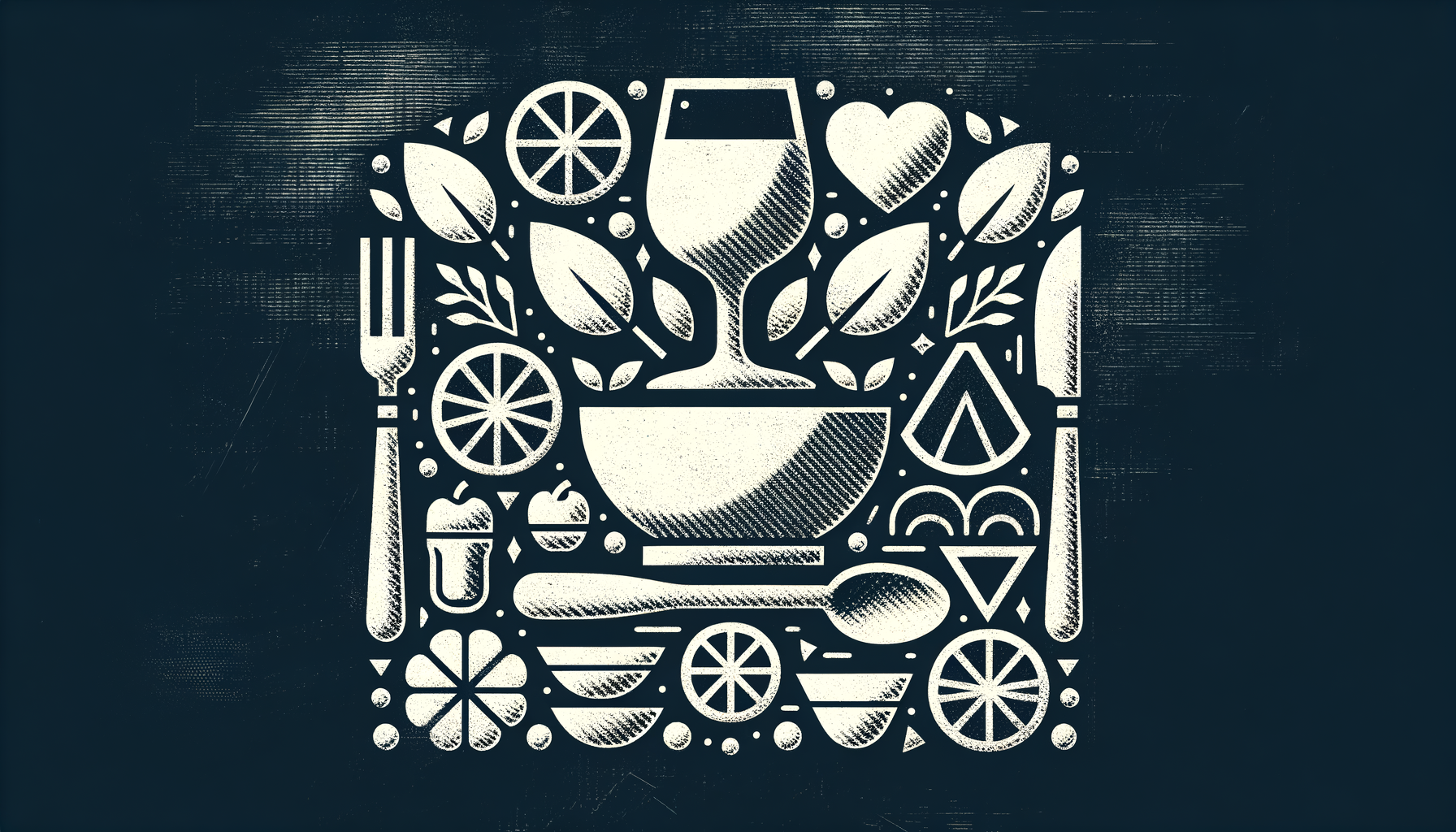“She’s not WRONG, she’s just… French.”
This was my father’s favorite way to excuse my grandmother’s behavior. Mamie, as we called her—and not “grand-mère” because she insisted we weren’t pretentious Parisians—was equal parts elegance and chaos. She could critique a Bordeaux with surgical precision but had no qualms about telling strangers their perfume was “trying too hard.”
Mamie, who moved to California from Lyon in the 1950s, wasn’t what you’d call emotionally effusive. She showed her love by correcting your table manners or making a perfectly risen soufflé, then casually reminding you that yours would collapse if you didn’t time the egg whites right. For Mamie, relationships—romantic or familial—weren’t built on words like “I love you.” No, they were constructed from acts like peeling fall pears for clafoutis or choosing the right wine to complement your mood. She didn’t just live life; she curated it.
Growing up, Mamie shaped my worldview in ways I didn’t fully appreciate until adulthood. Most notably, she instilled a deep belief that the stories we tell ourselves—the good, the bad, and the wonderfully weird—are how we navigate love. And, let’s be honest, love is probably the most complicated pairing of all.
Lessons from Lyon: Food, Families, and Dating
Mamie always said, “How you eat is how you date,” a philosophy that sounds absurd until you really think about it. For her, a plate of food was never just sustenance; it was a mirror into your soul. You see, in her mind, the man who carefully sliced baguette into uniform pieces before serving it at dinner was meticulous and thoughtful—“husband material.” But the one who spread brie on toast with reckless abandon? Romantic in the short term, disastrous in the long run.
Her musings were bizarrely predictive, at least judging by my teenage attempts at romance. The boys who left their cheese rinds in chaos would later ghost me, while the ones who lingered over farm-to-table menus became—at minimum—Facebook friends for life.
But Mamie preached more than just dining habits. Every dish was steeped in family lore. One particular meal—a rustic beef Bourguignon—came paired with the story of how her mother fell in love with a baker over a shared loaf of pain de campagne. (Spoiler: they married during wartime, and their arguments over sourdough techniques were legendary.) For Mamie, food wasn’t just dinner; it was a compass pointing to the heart.
It’s a weirdly romantic notion if you think about it. Consider going on a date to a trendy small-plates place and realizing how much your dining habits reveal. Are you aggressive and possessive over that final dumpling? Do you awkwardly offer it to your date out of politeness, only for them to insist? Suddenly, you’re in a real-life rom-com scene. (Spoiler: Date #2 rarely happens when someone hoards the dumplings. Trust Mamie on this one.)
Romance Is a Memory on Repeat
One of Mamie’s quirks, and perhaps her most endearing trait, was her ability to retell the same four family love stories during every major holiday, each time tweaking details like a winemaker adjusting fermentation.
There was the story of her aunt who traded her engagement ring for a ticket to San Francisco (and met her real soulmate on a ferry ride two months later). Or the neighbor down the road in Yountville who swore Mamie’s chardonnay was responsible for rekindling her marriage. “A good pairing,” Mamie always said, “is about balance… But someone has to dominate a little. Usually, it’s the wine.”
Hearing these tales as a kid shaped the way I thought about my own love life. I wasn’t just out there looking for a partner; according to family lore, I was auditioning for a future story at the Thanksgiving table. Was my high school boyfriend worthy enough to end up as anecdotal gold? (Spoiler: He was not. His idea of a fancy meal was instant ramen eaten while standing.)
But this tradition, problematic as it might sound in today’s swipe-right world, taught me an important lesson: we’re wired for stories, especially in relationships. The family lore—the burned croissants, the dramatic breakups over crème brûlée—all of it becomes texture in the larger narrative of love. Years later, when one relationship fizzled out after a “meh” avocado toast brunch catastrophe, I thought of Mamie. “The story wasn’t worth it,” I thought. Some dates are too unseasoned for memory.
Conflict à la Carte
Mamie’s brand of love wasn’t conflict-free. She and my grandfather (a quiet Napa native nicknamed “Big Paul” because he wasn’t, ironically, big) sparred constantly—predictable debates ranging from garlic ratios to politics. They argued like Gordon Ramsay was filming off-camera: always intense, occasionally uncomfortable, but never dull. Yet, there was an odd comfort in their bickering. For them, the act of disagreeing was proof they belonged to each other.
Whenever I found myself in hot water over love—whether clashing personalities or that messy thing where one person “forgets” to text for four days—I’d think back to Mamie and Big Paul. Did I want a relationship that always tasted like vanilla pudding? Or one with a bit of spice, even if it risked a burned corner now and again? Spoiler: spice wins every time.
Mamie taught me how to interpret the subtext of quarrels. Arguments about taking out the recycling are often not about the recycling (shocker); they’re about whether attention to detail—or lack thereof—sends a silent message of respect. As Mamie would say, “Arguments, like over-whisking the sauce, are proof you care. Only bad cooks—or bad lovers—don’t.”
Love, Like Wine, Gets Better When You Let It Breathe
As a Napa Valley native, I’ve learned love often parallels wine. Both start fresh and raw, with layers that unfold only over time. Mamie used to say you could tell the difference between a “fling” and something worth savoring by how it settled on the palate of your life.
And unforgiving as Mamie could be, she believed in second chances—rare epiphanies over a shared cabernet. Once after a particularly brutal breakup, I visited her in Yountville for “emergency tea and biscuits,” a ritual always signaled with a cryptic text. We spent the afternoon snacking and comparing failed crushes to flat champagnes. “You mourn, you laugh, you move on,” she said. By sunset, we were paired with a cheese plate and strategizing my next adventure in love.
She left me with one last gem that day: “Good relationships,” she said, “need time to breathe. Decant if necessary. There’s no point rushing into something when all the flavors haven’t even come to the surface yet.”
Conclusion: Writing Your Love Story
The truth is, love is messy. Beautiful, exquisite—but inherently messy. If family gatherings taught me anything as a kid, it’s that the relationships worth savoring are the ones loaded with layers, both sweet and complex. Mamie wasn’t always perfect—no relationship is—but every memory of her is a story I still tell myself about love, food, and finding balance.
So here’s my closing thought on family, romance, and your own personal life story: whether you’re petit amour (wearing the training wheels of love) or grand cru (aged to perfection), you’re always in the process of crafting your narrative. Fill it with the meals, moments, and messy arguments that matter most.
And, like Mamie always said, “If the pairing doesn’t work? Change the wine, not the story.” Cheers.




















